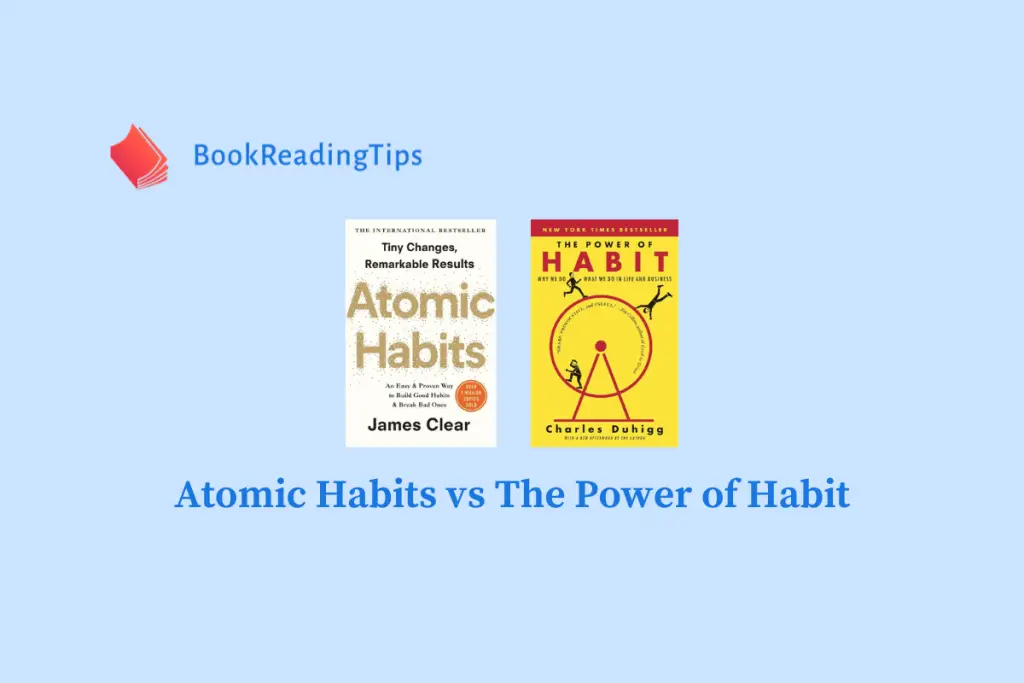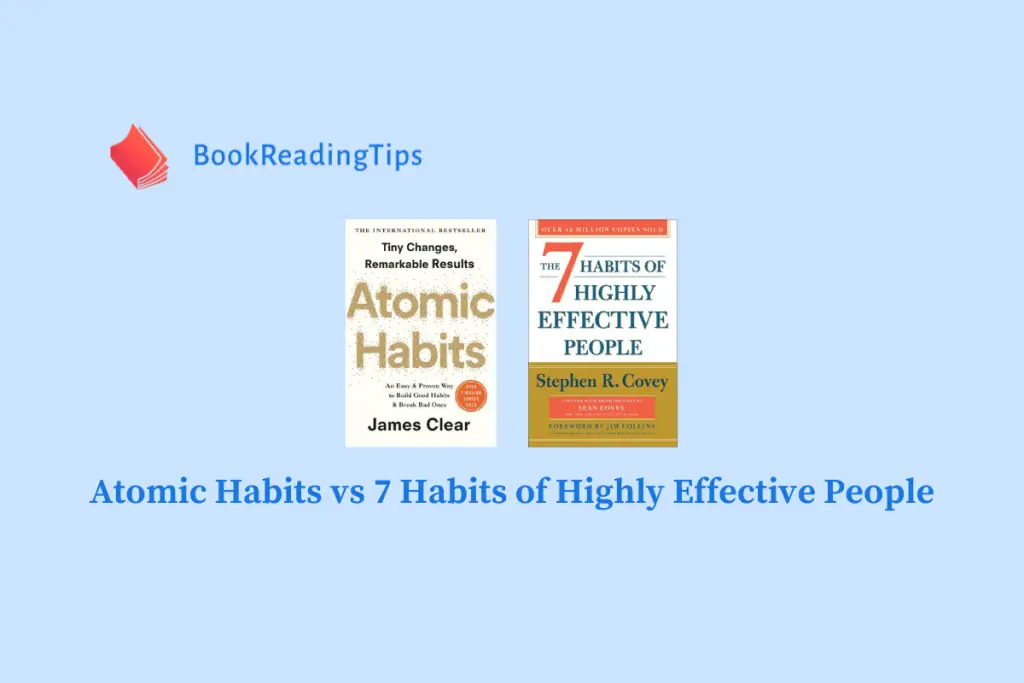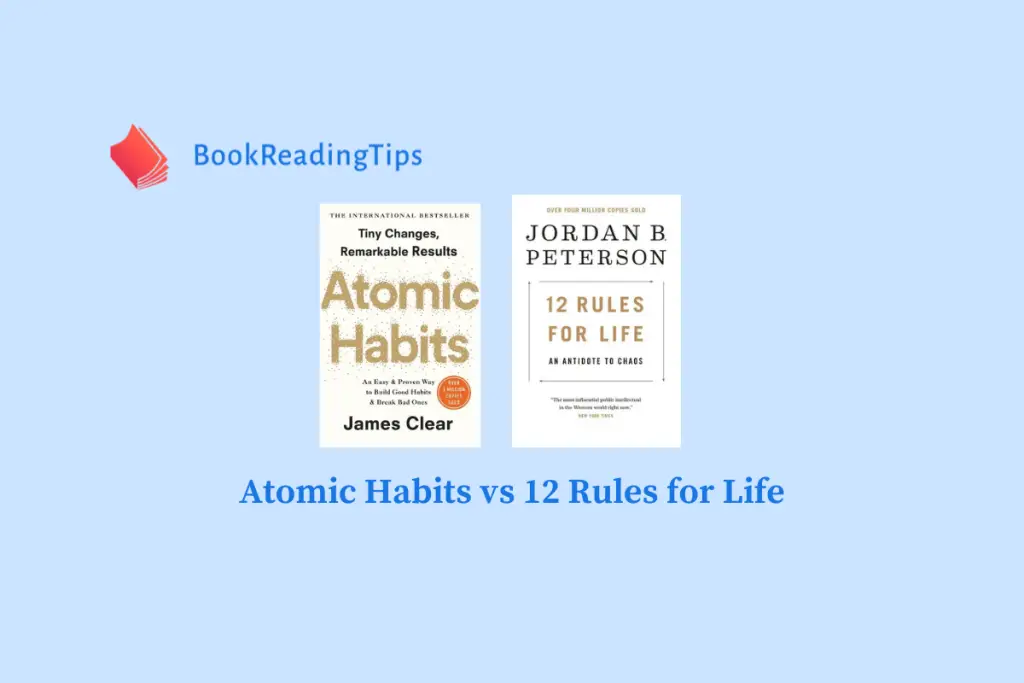The world of self-help literature is brimming with insightful and transformative works, two of which are James Clear’s “Atomic Habits” and Brianna Wiest’s “The Mountain is You.” “Atomic Habits” delves into the power of habit formation and how tiny changes in our daily routines can lead to remarkable results in our lives. On the other hand, “The Mountain is You” explores the concept of self-sabotage, providing readers with a roadmap to overcoming personal obstacles and achieving self-growth. Both books offer profound wisdom and practical strategies, but they approach personal development from distinct perspectives.
The primary difference between “Atomic Habits” and “The Mountain is You” lies in their approach to personal change. While “Atomic Habits” focuses on the external behaviors and habits that shape our lives, “The Mountain is You” delves into the internal, emotional aspects of change. It’s about understanding and overcoming the self-imposed barriers that hinder our growth. As such, “Atomic Habits” might appeal more to those who prefer a more structured, systematic approach to self-improvement, while “The Mountain is You” might resonate more with those who are seeking to address deeper emotional issues and patterns of self-sabotage.
In this article, I’ll be discussing both these books in depth, comparing their approaches, and examining their unique insights. I believe that both these books have valuable lessons to offer, and understanding their perspectives can provide us with a more comprehensive approach to personal development. Whether you’re a seasoned self-help enthusiast or just starting on your journey of self-improvement, I think you’ll find something of value in the pages of both “Atomic Habits” and “The Mountain is You.” So, let’s delve deeper into these transformative works and explore the wisdom they have to offer.
Table of Contents
- Unpacking the Wisdom of Atomic Habits
- Climbing the Peaks With The Mountain is You
- Similarities & Differences Between Both Books
- FAQs
- 1. What are the main differences between Atomic Habits and The Mountain Is You?
- 2. Which book is better for personal development?
- 3. Can these books be complementary?
- 4. Are these books based on scientific research?
- 5. Do these books provide practical advice?
- 6. Which book is easier to read and understand?
- Conclusion
Unpacking the Wisdom of Atomic Habits
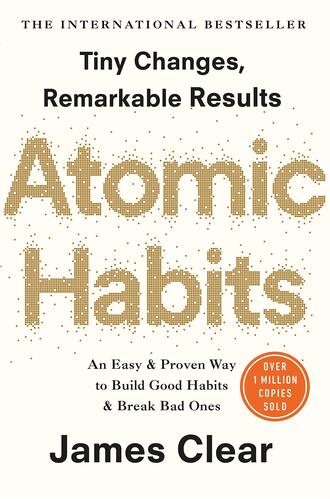
i. The Power of Small Changes
In my opinion, one of the most striking principles in “Atomic Habits” is the emphasis on small, incremental changes. The author, James Clear, argues that we often underestimate the power of minor adjustments in our behavior. I feel that this is a crucial reminder for anyone looking to improve their life. We often get overwhelmed by the enormity of our goals, forgetting that it’s the small, consistent changes that lead to significant transformations.
ii. The Role of Systems in Achieving Goals
Another principle that resonated with me in “Atomic Habits” is the importance of systems over goals. Clear argues that focusing solely on goals can lead to a cycle of temporary success followed by disappointment. In contrast, implementing systems – the daily habits that will get us to our goals – ensures long-term and sustainable progress. This, I think, is a game-changer for anyone struggling to maintain motivation or consistency in their pursuit of personal growth.
iii. The Impact of Environment on Habits
Lastly, “Atomic Habits” emphasizes the role our environment plays in shaping our behavior. Clear suggests that by manipulating our surroundings, we can make good habits more attractive and bad habits less appealing. I feel this is a powerful tool that is often overlooked. It’s not just about willpower; it’s about creating an environment that supports our desired behavior.
Climbing the Peaks With The Mountain is You
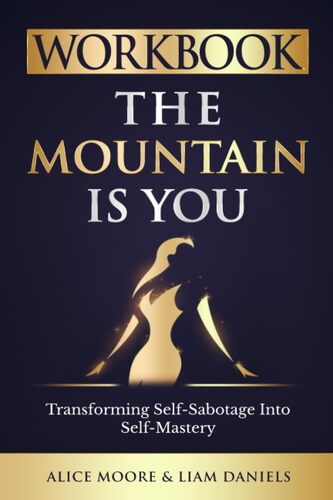
i. The Journey of Self-Transformation
“The Mountain Is You” by Brianna Wiest presents a compelling case for self-transformation as a journey rather than a destination. I feel that this perspective is empowering and liberating. It frees us from the pressure of needing to have it all figured out and allows us to embrace the process of growth, with all its ups and downs.
ii. The Importance of Self-Accountability
In my opinion, one of the most profound principles in “The Mountain Is You” is the emphasis on self-accountability. Wiest argues that we are the only ones responsible for our actions and the resulting outcomes in our lives. This is a potent reminder that we have the power to change our circumstances by changing our behavior. It’s a call to stop playing the victim and start taking charge of our lives.
iii. The Power of Acceptance
Lastly, “The Mountain Is You” underscores the importance of acceptance in personal growth. Wiest suggests that we must first accept ourselves, our flaws, and our current circumstances before we can begin to change. I think this is a crucial step that is often skipped. We rush into trying to improve ourselves without first accepting where we are. This lack of acceptance, I feel, can lead to self-rejection and hinder our progress.
Similarities & Differences Between Both Books
Similarities
In my opinion, both ‘Atomic Habits’ by James Clear and ‘The Mountain Is You’ by Brianna Wiest share a common theme: they focus on personal growth and self-improvement. They both emphasize the importance of transforming one’s life through changing personal habits and overcoming self-sabotage.
I think that both books offer practical advice and actionable steps to help readers create meaningful changes in their lives. They both encourage readers to reflect on their current patterns of behavior, identify areas for improvement, and implement new strategies to achieve their goals.
In ‘Atomic Habits’, Clear stresses the significance of small, incremental changes, while in ‘The Mountain Is You’, Wiest highlights the necessity of overcoming self-imposed obstacles. Despite their different approaches, both authors agree that change is a gradual process that requires consistent effort and persistence.
Differences
While there are notable similarities between ‘Atomic Habits’ and ‘The Mountain Is You’, there are also fundamental differences. The most significant difference, in my opinion, lies in their approach to the concept of change.
‘Atomic Habits’ is more about the practicality of forming good habits and breaking bad ones. It focuses on the science behind habit formation and provides a step-by-step guide for developing new habits. The book is based on the premise that small, daily changes can lead to remarkable results over time.
On the other hand, ‘The Mountain Is You’ delves into the psychological aspects of self-sabotage, exploring why we often become our own worst enemies. Wiest provides insights into how we can recognize and overcome our self-defeating behaviors. The book is more about transforming one’s mindset and overcoming internal obstacles than it is about habit formation.
In conclusion, while both books provide valuable insights into personal growth and self-improvement, they do so from different perspectives. ‘Atomic Habits’ offers a more structured and practical approach, while ‘The Mountain Is You’ takes a more introspective and psychological approach. Both books, however, ultimately aim to empower readers to take control of their lives and achieve their full potential.
FAQs
1. What are the main differences between Atomic Habits and The Mountain Is You?
Atomic Habits, by James Clear, focuses on small, incremental changes for big results. It’s about building good habits and breaking bad ones. The Mountain Is You, by Brianna Wiest, is about overcoming self-sabotage and transforming your life. The former is more about habit formation, while the latter is about personal transformation.
2. Which book is better for personal development?
Both books offer valuable insights for personal development. Atomic Habits is excellent if you’re looking to build or break habits, while The Mountain Is You is more suited if you’re struggling with self-sabotage and seeking transformation. Your choice depends on your personal needs and goals.
3. Can these books be complementary?
Absolutely. Atomic Habits can help you formulate and implement the habits you need to transform, while The Mountain Is You can guide you in overcoming obstacles and self-sabotage that may hinder your progress. Reading both can provide a comprehensive approach to personal development.
4. Are these books based on scientific research?
Yes, both books are grounded in scientific research. Atomic Habits is based on behavioral science and psychology, while The Mountain Is You incorporates elements of psychology and neuroscience to explain self-sabotage and personal transformation.
5. Do these books provide practical advice?
Yes, both books are practical and actionable. Atomic Habits provides clear strategies for habit formation and elimination, while The Mountain Is You offers exercises and strategies to overcome self-sabotage and transform your life.
6. Which book is easier to read and understand?
Both books are written in an approachable, easy-to-understand style. Atomic Habits uses real-life examples to explain complex concepts, while The Mountain Is You uses a conversational tone and relatable examples to discuss personal transformation.
Conclusion
Atomic Habits and The Mountain is You both delve into the world of self-improvement, but they approach it from different angles. Atomic Habits, by James Clear, focuses on the power of small, consistent actions in achieving long-term goals. It emphasizes the importance of systems over goals and offers practical strategies for habit formation and elimination.
On the other hand, The Mountain is You by Brianna Wiest explores the concept of self-sabotage. It encourages readers to confront their inner obstacles and transform them into stepping stones for personal growth.
While both books share the common theme of personal development, they differ in their methods. Atomic Habits provides a more structured, step-by-step approach, whereas The Mountain is You takes an introspective, emotional route.
Despite their differences, both books offer valuable insights into the human psyche and behavior. They complement each other well, providing a holistic view of personal growth.
For those seeking practical techniques to build beneficial habits, Atomic Habits is a must-read. For those ready to confront their fears and self-imposed limitations, The Mountain is You offers a deep, emotional journey. These books, when read together, provide a comprehensive guide for anyone on the path to self-improvement.

